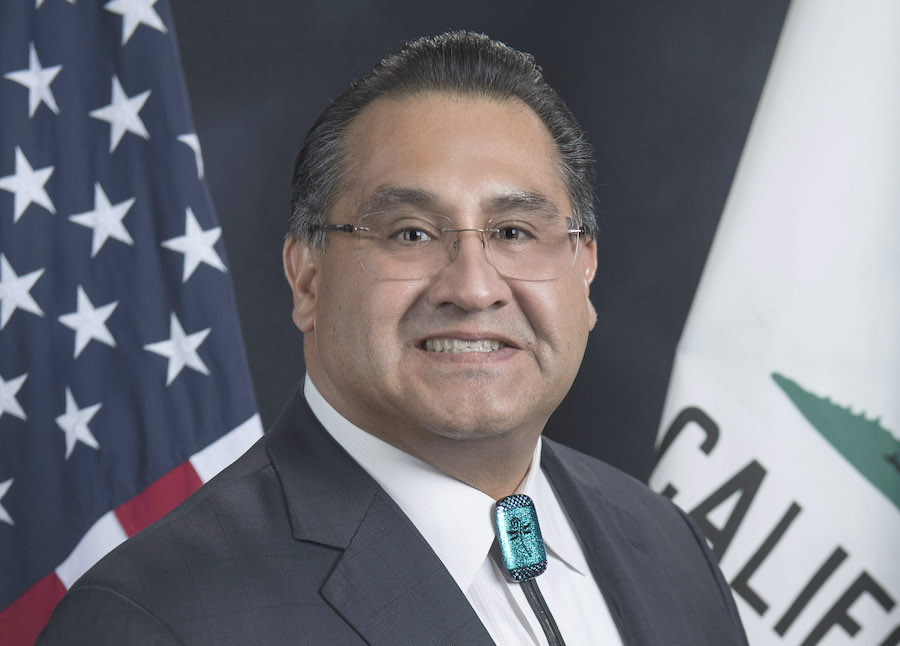
- Details
- By Jenna Kunze
SACRAMENTO, Calif. — On Tuesday, the California Senate unanimously approved a bill introduced by the state’s first Indigenous lawmaker to grant judicial employees the first-ever paid holiday recognizing Native Americans.
California Native American Day will grant state court employees a paid state holiday on the fourth Friday in September. Though that date has previously been recognized by the state and tribal communities, it’s never counted as a judicial holiday.
In a mark of significance, the bill switches out Columbus Day— observed on the second Monday in October— as an excluded paid holiday, in favor of Native American Day.
“We’ve been celebrating it,” said Assemblymember James Ramos (Serrano/Cahuilla tribe), who detailed celebratory dances, feasts and gatherings for the holiday as a child growing up on the San Manuel Indian Reservation in San Bernardino County. “It's now that the state of California shows how representation truly does matter about who we are as California Indian people. “
The bill cleared both the assembly and the senate, and now sits on the governor’s desk awaiting his signature.
Ramos said he expects Gov. Gavin Newsom to sign the proposed legislation, taking effect in September of 2022.
This bill has garnered widespread support from tribal nations, including the Morongo Band of Mission Indians, the San Manuel Band of Mission Indians, the Yocha Dehe Wintun Nation and the California Tribal Business Alliance.
Assemblyman Ramos, elected in 2018, has introduced and guided passage of more than a dozen other bills since taking office.
Included among them are: a bill protecting Native American students rights to wear cultural regalia to their graduation ceremonies; a bill strengthening the Native American Graves Protection and Repatriation Act (NAGPRA); a bill establishing a Native American Voting Accessibility Advisory Committee; a bill creating four new positions within the California Department of Justice (DOJ) to provide assistance to tribal police. Additionally, he brought forward a resolution to commit state aid and sources to the federal Indian Boarding School Initiative.
Also on Tuesday, Ramos held a press conference on a new bill that would allocate $5 million to the Attorney General to investigate missing and murdered indigenous women cases in the state.
Ultimately, Ramos said, these laws are “a long time coming” for a state with the highest population of Native Americans.
”It's a big step in the in the direction of a lot of work that still needs to be done to make sure that people truly understand the atrocities, the genocide, that was inflicted upon our people,” he said.
“But they also have to remember the strong resiliency of the people here in the state of California, the Indian people. We're still here. And it's our stories, It's our history, It's our culture that still needs to be in the mainstream of what makes California a state today.”
More Stories Like This
Native News Weekly (August 25, 2024): D.C. BriefsNavajo Nation Mourns the Passing of Former Vice President Rex Lee Jim
Deb Haaland Earns Endorsement From Communications Workers of America Local 7076
University Soccer Standout Leads by Example
Two Native Americans Named to Democratic Congressional Campaign Committee's“Red to Blue” Program
Help us defend tribal sovereignty.
At Native News Online, our mission is rooted in telling the stories that strengthen sovereignty and uplift Indigenous voices — not just at year’s end, but every single day.
Because of your generosity last year, we were able to keep our reporters on the ground in tribal communities, at national gatherings and in the halls of Congress — covering the issues that matter most to Indian Country: sovereignty, culture, education, health and economic opportunity.
That support sustained us through a tough year in 2025. Now, as we look to the year ahead, we need your help right now to ensure warrior journalism remains strong — reporting that defends tribal sovereignty, amplifies Native truth, and holds power accountable.
 The stakes couldn't be higher. Your support keeps Native voices heard, Native stories told and Native sovereignty defended.
The stakes couldn't be higher. Your support keeps Native voices heard, Native stories told and Native sovereignty defended.
Stand with Warrior Journalism today.
Levi Rickert (Potawatomi), Editor & Publisher

